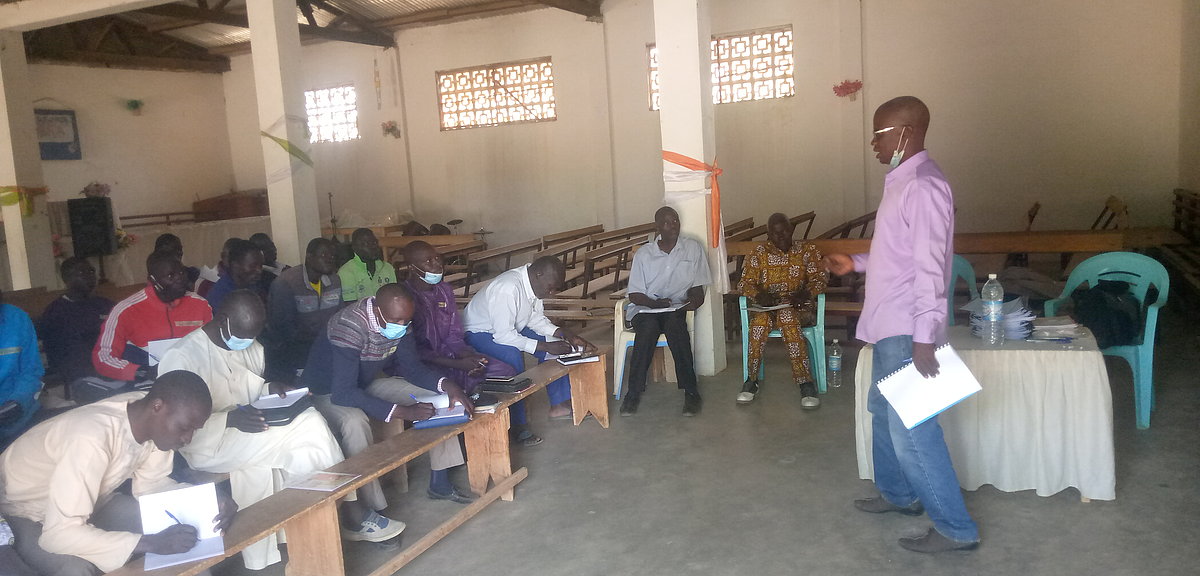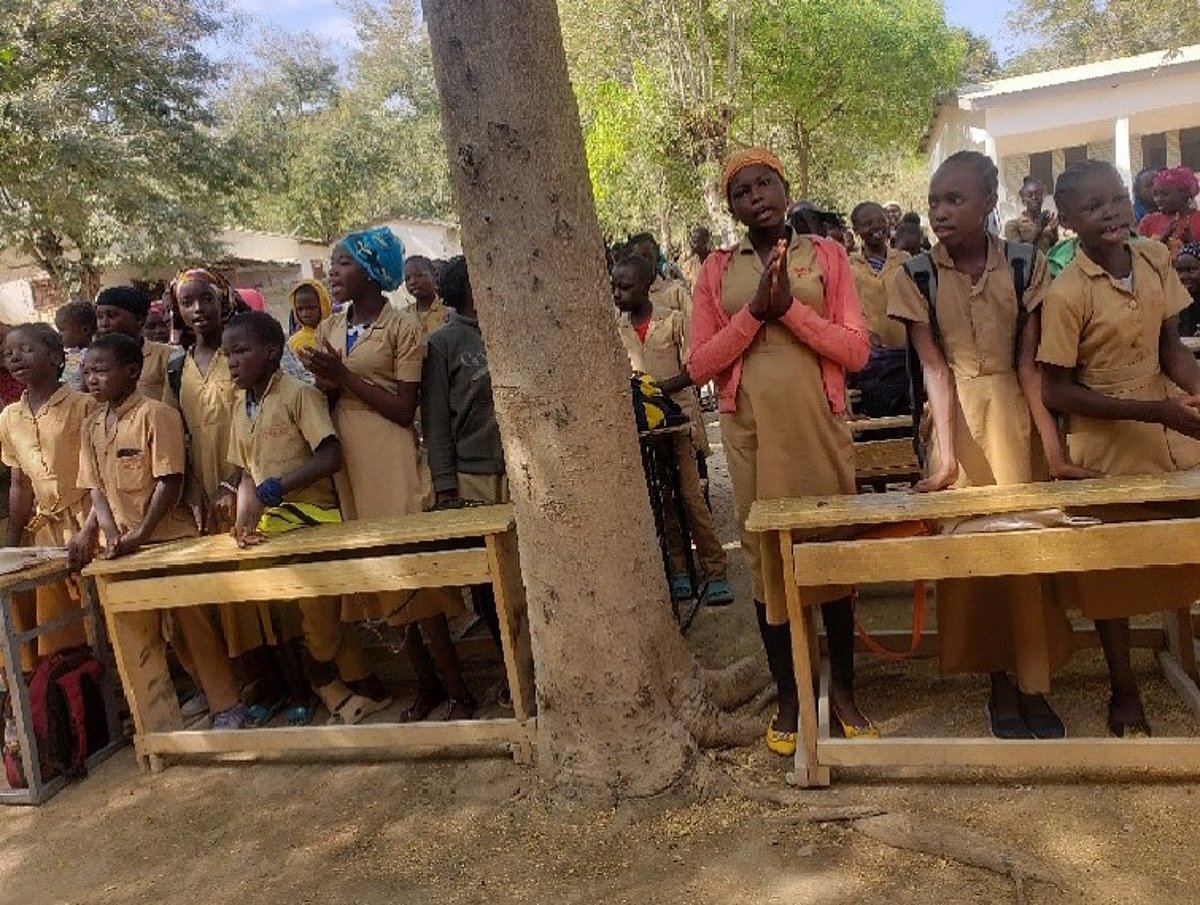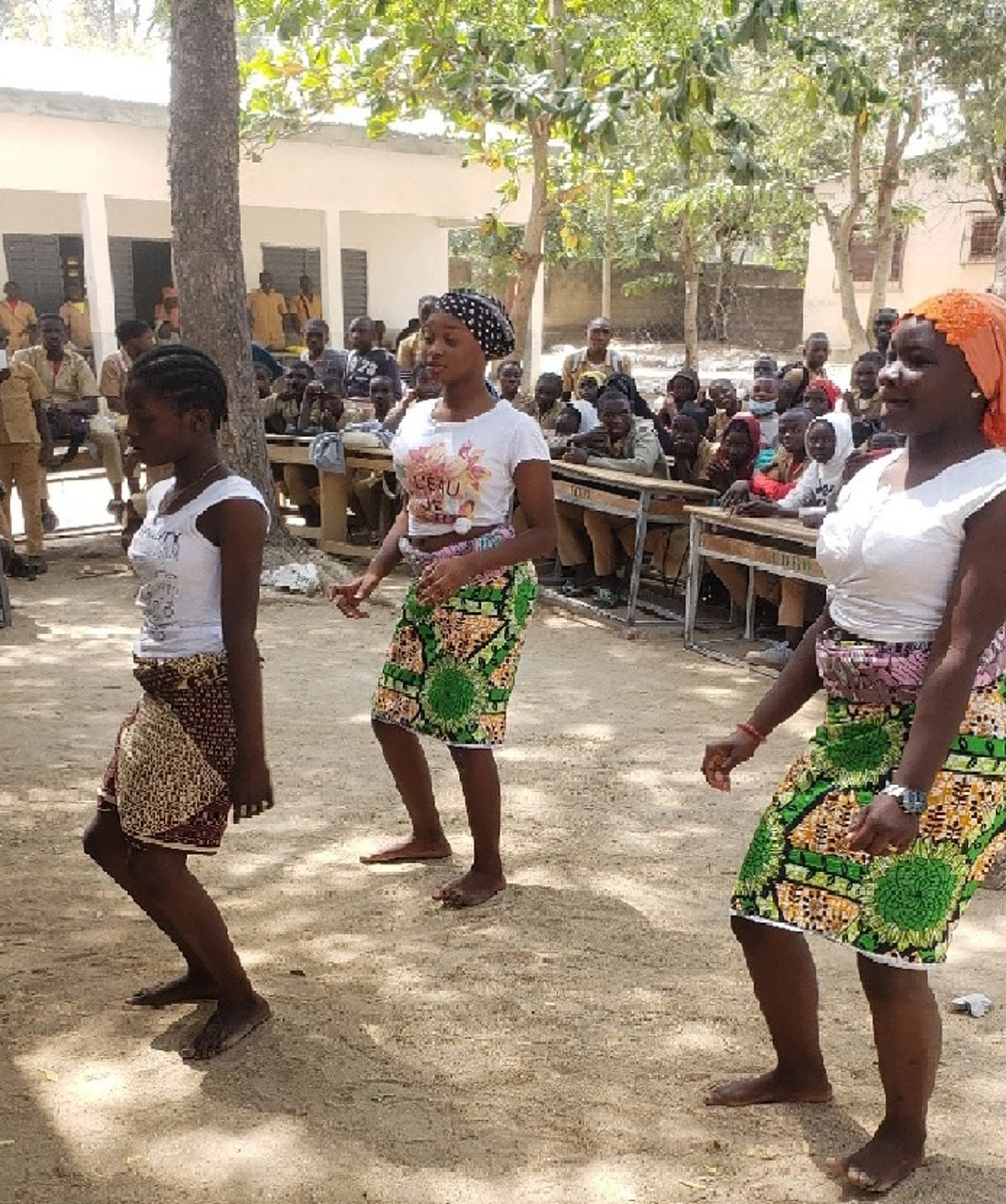North Cameroon – a forgotten region
The “Extreme North” region of Cameroon is one of the poorest areas in the world. It borders Nigeria and Chad. Niger is also only a few kilometers away. Lake Chad is the lifeline in the region but it has been suffering from the effects of climate change for many years. A comparison of satellite images from different years shows the dramatic decline of the lake. In addition, the terror of Boko-Haram threatens the population. The sect’s hostility towards education, moderate Islam and Christianity often make life impossible for people.
One of the largest refugee camps in the world is located in Minawao. 67,000 people live here in a very confined space. The United Nations assumes that 2.5 million people are on the run in this area alone. Many of them are internally displaced. We can hardly imagine what devastating additional consequences the corona pandemic will have on these people’s lives.
The many projects that EBM INTERNATIONAL supports in this region are lighthouses in one of the largest humanitarian crisis regions of our time. Three schools in Dagaï, Gamboura and Mokolo have an educational mandate that gives children and young people a future. They are also safe places for countless children at risk. A few weeks ago, the director, Godjai Ngoba from Mokolo, reported that there are currently 500 children being taught in Mokolo alone, and most of them graduate at the end of their school career. Currently, the support from EBM INTERNATIONAL means that 22 children, who have fled the terror, are educated and housed. Some of them are orphans whose parents fell victim to the sect. The school is a sign of God’s love for the people there – a place where many children get to know Jesus.
In addition to the educational initiatives, the “Sahel Vert” project by EBM INTERNATIONAL has been contributing to fighting the advancement of the Sahel zone for decades. In 2021, we will strengthen this commitment: The new project manager, Jonathan Woulkam, has already started to replicate the project from Dagaï to twelve other villages in the region. In the local Baptist churches, people are trained to plant trees to prevent soil erosion and to lower the water table. Tens of thousands of trees are to be planted throughout the year. “Sahel Vert” joins the campaign of the so-called Great Green Wall, which is supposed to draw a belt of trees across the African continent.



